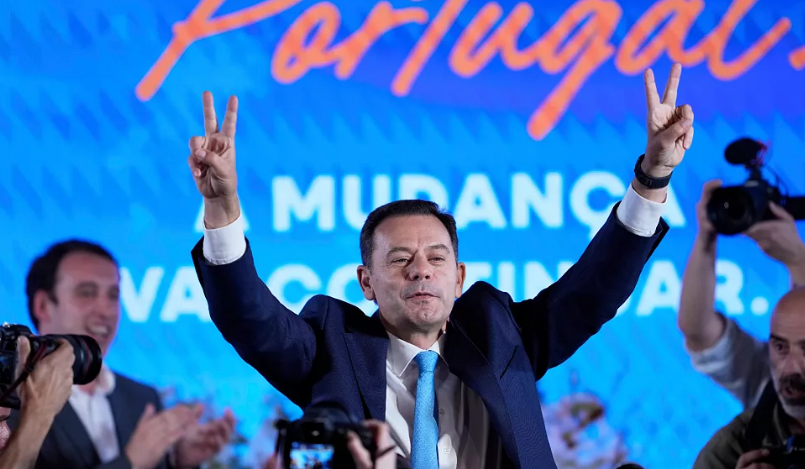Portugal’s Prime Minister Luís Montenegro has ruled out any immediate constitutional reform, rejecting demands from the far-right Chega party as he prepares to form a minority government focused on economic growth and public service improvements.
Montenegro, leader of the centre-right Democratic Alliance (AD), was confirmed as prime minister by President Marcelo Rebelo de Sousa on Thursday following the official conclusion of vote counting from this month’s general election. The AD secured 91 seats in the 230-seat Assembly of the Republic, while Chega surprised many by finishing second with 60 seats. The long-dominant Socialist Party (PS) came third with 58.
Despite Chega’s calls for sweeping constitutional changes, Montenegro said such reforms are not on his government’s agenda. “Constitutional revision is not a government priority,” he told reporters. “We’re not going to do it any time soon and so we’re not prepared to entertain that discussion.”
Instead, Montenegro said his administration will focus on revitalising Portugal’s economy, upgrading public services, and overhauling the national health system. He is expected to present a minority government once the new parliament is officially convened.
Montenegro’s stance sets the tone for a potentially complex legislative term. Chega, led by André Ventura, has indicated that while it won’t join the government, it will not obstruct its formation either. “We will not support a motion to reject the government’s programme,” Ventura said, pledging to allow the government to function despite policy disagreements.
Carlos César of the Socialist Party echoed a similar sentiment, stating the PS would respect the electoral outcome and avoid obstructing the government’s work. “The will of the people must be respected,” César said.
The final confirmation of Montenegro’s reappointment followed the tallying of overseas ballots, which completed the election results late Wednesday. The rise of Chega to second place has disrupted Portugal’s long-standing political balance, traditionally dominated by the centre-left and centre-right parties.
Montenegro, who also served as prime minister in the previous government, now faces the challenge of leading with a slim mandate and navigating between competing political pressures while delivering on his domestic reform promises.


